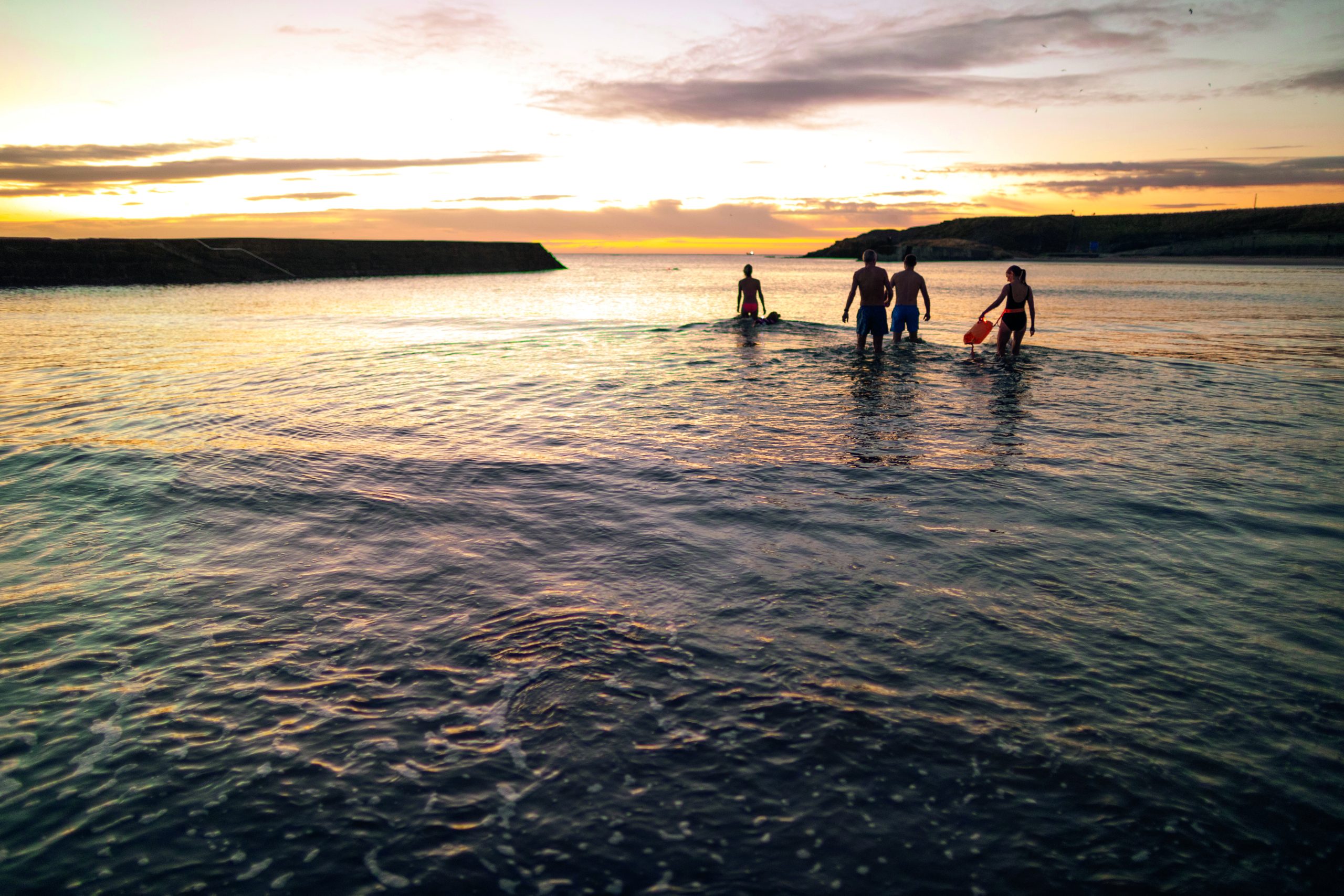
Thriving Ocean, Thriving People: Watersports bring physical health benefits of up to £20.2bn

Friends open water swimming at dawn.
This year marks the start of the Ocean Decade and, with many of us being deprived of Vitamin Sea over the last two years, we have been reminded just how important the ocean is to our mental and physical health. Our new report, released today shines a spotlight on the importance of a thriving ocean for thriving people. Through a representative survey of 10,000 people across the UK, we’ve found that people taking part in ocean-based water sports has doubled since the start of the pandemic. Extrapolated to the UK population and using methods widely used by health professionals to quantity health outcomes, we’ve estimated physical health benefit of water sports of up to £20.2bn per year.
The evidence we collated suggests that, despite COVID-19 restrictions, the level of engagement with the marine environment remains strong. More people have reported visiting the coast to relax and unwind through the pandemic than previous years with 85% of people reporting that spending time by the sea makes them feel refreshed and revitalised; and 86% saying it makes them feel calm and relaxed. With specialist mental health care costs reaching up to £1,125 per case and evidence of the link between being in close proximity to the sea and mental health, there is really clear potential for ‘blue prescribing’ as an alternative mental health treatment.
Amy Slack, Head of Campaigns & Policy at Surfers Against Sewage says:
“The ocean is our life support machine. It covers 70% of the earths surface, provides 80% of the oxygen we breath, and absorbs 93% the excess heat from CO2, protecting us from climate change. The COVID-19 pandemic has shown us just how important the ocean is to our mental and physical health. During lockdown, many of us have missed the peace and calm being near the ocean can bring us, the joy we experience chasing waves on the beach, and the exhilaration we get from riding surf. We depend on a wilder ocean for a nourished mind, we depend on a cleaner ocean for a healthy body. At the start of the UN Decade for the Ocean, our report highlights the clear public demand for increased ocean protection that allows marine ecosystems to rebound and thrive and, in turn, allows us to thrive with it.”
We also point to evidence that suggests people feel more restored and happier when there is more natural and protected marine environments, highlighting the risk that continued degradation of the marine environment could have on public health and wellbeing. However, whist almost a third of UK seas are designated as ‘Marine Protected Areas’ (MPA), many are described as ‘paper parks’ that exists without sufficient monitoring and enforcement with many destructive practices still permitted. Just over 60% of people who knew what an MPA was thought they were ineffective at protecting the ocean. We’ve found that over half to respondents to our survey thought that UK seas were threatened and in poor health with 80% wanting to see action to restore the ocean, 60% wanting more effective government action.
In June, the government announced that Highly Protected Marine Areas would be piloted in inshore and offshore waters in England. The call for evidence to inform pilot sites has been undertaken with public consultations expected in 2022. We are calling for 30% of all marine protected areas to be highly protected marine areas (HPMA’s) by 2030.
